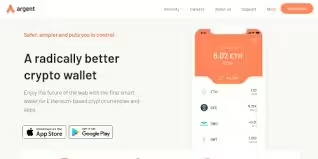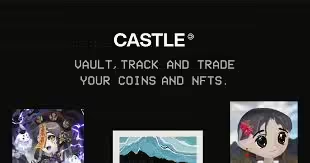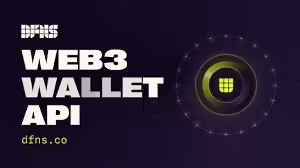In the dynamic landscape of blockchain technology and cryptocurrencies, smart contract wallets stand out as a pivotal innovation for secure and efficient digital asset management. These wallets harness the capabilities of smart contracts to streamline transactions, bolster security, and introduce advanced functionalities absent in conventional wallets. Our in-depth guide delves into the essence of smart contract wallets, their advantages, operational mechanisms, and the leading options available in today’s market.
1. Introduction to Smart Contract Wallets
What are Smart Contract Wallets?
Smart contract wallets, a subset of non-custodial web3 wallets, employ smart contract technology to refine and automate transactions. These wallets, diverging from traditional counterparts that depend on central authorities, thrive on decentralized networks like Ethereum, offering robust security, extensive customization, and web3 integration that eclipse the capabilities of traditional wallets.
The Need for Smart Contract Wallets
The ascent of cryptocurrencies and blockchain technology has cast a spotlight on the constraints of traditional custodial wallets. Users entrusting their digital assets to such wallets are at odds with blockchain’s decentralized ethos. Smart contract wallets, championing trustless systems and self-custody, empower users to maintain sovereignty over their assets, complemented by the resilience and adaptability of smart contracts.
2. Understanding Ethereum Accounts
Externally-Owned Accounts (EOAs)
Externally-Owned Accounts (EOAs) represent the quintessential Ethereum account type. They emerge from generating a unique public-private key pair, granting the owner the means to manage funds securely. EOAs are pivotal for on-chain transactions, capable of initiating interactions with other EOAs or smart contracts, thereby serving as a cornerstone for blockchain security and engagement.
Contract Accounts
Conversely, contract accounts are essentially smart contracts that double as cryptocurrency wallets, equipped with customizable features and logic for sophisticated operations. While they lack the autonomy to kickstart transactions, these contract accounts spring into action upon receiving prompts from an EOA, a crucial aspect of dapp development.
3. How Smart Contract Wallets Work
Creating a Smart Contract Wallet
To forge a smart contract wallet, one must dispatch a transaction from an EOA to deploy a smart contract onto the blockchain, which then assumes the role of the wallet, safeguarding the user’s holdings. Although EOAs are cost-free to create, spawning a smart contract wallet triggers a gas fee, a necessary expenditure for leveraging blockchain applications.
Administering Transactions through Smart Contracts
Activating a transaction from a smart contract wallet necessitates an originating action from the EOA designated as the wallet’s administrator. Recognizing the admin EOA’s directive, the smart contract wallet proceeds to execute the transaction, a protocol that fortifies access controls and enhances security through the strategic use of smart contracts.
4. Key Features of Smart Contract Wallets
Multi-Signature Capability
One of the significant advantages of smart contract wallets is their robust multi-sig capability, which bolsters security and enhances digital asset management. Users can enlist hardware wallets or trusted individuals as co-signers or guardians, who play a crucial role in executing multi-signature transactions. This ensures that every transaction receives multiple approvals for added security before processing.
Customizable Transaction Controls
Smart contract wallets empower users with customizable features that allow them to set various parameters for managing transactions. Users can define limits, whitelist or blacklist addresses, and even execute batch actions by bundling multiple transactions into one. These customizable controls offer unprecedented flexibility and control, making smart contracts a powerful tool for managing digital assets.
Advanced Security Measures
Smart contract wallets elevate the security of users’ digital assets with advanced measures like two-factor authentication. Beyond multi-signature capabilities, users can fortify their wallets with multi-factor authentication in-app or via third-party authenticators. These layers of security significantly enhance the protection of digital assets within the wallet.
5. Advantages of Smart Contract Wallets
Enhanced Security
Smart contract wallets offer greater security than custodial wallets, leveraging blockchain security to safeguard users’ digital assets. They utilize cutting-edge encryption protocols to protect against theft or unauthorized access. With private keys encrypted and stored securely within the wallet, it becomes a formidable challenge for hackers to access a user’s funds.
Improved User Experience
Smart contract wallets are known for their user-friendly interface, streamlining digital asset management and offering a seamless experience compared to traditional wallets. They simplify interactions with dApps by eliminating the need for users to sign every transaction. Features like multi-sig and customizable transaction controls empower users to manage their assets with greater efficiency.
Tailored Transaction Management
Smart contract wallets boast customizable features that allow users to fine-tune transaction parameters for tailored digital asset management. Users can impose daily spending limits, establish transaction rules, and automate certain operations. This level of customization with smart contracts significantly improves the management and security of transactions.
6. Top Smart Contract Wallets in the Market
Safe

Safe, a smart contract wallet renowned for its multi-sig feature, demands a minimum number of approvals for a transaction, reinforcing digital asset management. Compatible with various blockchains such as Ethereum, Polygon, and BNB Chain, Safe provides users with enhanced security through its multi-signature capabilities and smart contracts that allow for customizable transaction controls. It was also called Genosis wallet before
Argent

Argent stands out as a user-friendly account abstraction wallet built on Ethereum, offering advanced security features for digital asset management. Its smart contract wallet empowers users to securely manage their assets, boasting multi-signature capabilities and customizable transaction controls tailored to user preferences.
Castle

Castle, designed as a user’s forever wallet, leverages smart contracts on the Ethereum blockchain to provide top-notch security for digital asset management. This wallet simplifies asset management and collaboration, featuring multi-signature capabilities and customizable transaction controls for enhanced security.
DFNS

Dfns, a versatile wallet infrastructure for web3 integration, supports a wide array of blockchains and focuses on simplifying digital asset management. It offers a user-friendly interface, advanced security features, and multi-sig capabilities, along with customizable transaction controls to cater to various user needs.
Candide

Candide utilizes account abstraction on the Optimism blockchain, offering a smart contract wallet with robust security measures for digital asset management. Users gain enhanced control over their assets through multi-signature capabilities and customizable transaction controls, ensuring a secure asset management experience.
UniPass

UniPass, a non-custodial smart contract wallet, supports multiple blockchains and changed the digital asset management by removing the need for seed phrases and gas fees. It offers users a seamless and secure experience with multi-signature capabilities and customizable transaction controls.
Soul Wallet

Soul Wallet, backed by the Ethereum community, combines user-friendly functionalities with enhanced security for effective digital asset management. It provides users with multi-signature capability and customizable transaction controls, fostering a secure and efficient environment for managing digital assets.
7. The Impact of ERC-4337: Account Abstraction
Introduction to Account Abstraction
ERC-4337 introduces account abstraction as an innovative Ethereum standard, paving the way for smart contracts and blockchain technology advancements. This standard allows for the creation of smart accounts, offering unprecedented flexibility and innovation opportunities in smart contract wallets.
The Benefits of Account Abstraction
Account abstraction enhances the user experience by making it unnecessary to have a separate externally owned account (EOA) with a private key for initiating transactions. Smart accounts can now send a UserOperation object that clearly defines the transaction’s intent, bypassing the need for an EOA. This breakthrough not only streamlines the process but also adheres to gas limits, reducing the gas fees associated with transactions and boosting the user-friendly nature of smart contract wallets.
How ERC-4337 Improves Smart Contract Wallets
The introduction of ERC-4337 marks a significant advancement in smart contract wallets, removing the dependency on separate EOAs and cutting down on transaction costs. With account abstraction, users gain the ability to directly interact with smart contracts from their smart contract wallets, which simplifies the user experience considerably. This standard is paving the way for further innovation in blockchain scalability and the functionality of smart contract wallets.
8. Use Cases for Smart Contract Wallets
Simplified Onboarding Process
Smart contract wallets are revolutionizing the onboarding process, making it more user-friendly for newcomers to the blockchain space. Leveraging account abstraction and features like social recovery, users can effortlessly set up wallets and regain access to their funds without the sole dependence on private keys. This streamlined approach to onboarding is significantly lowering the barriers to entry in the blockchain ecosystem.
Collaborative Decision-Making
Smart contract wallets are at the forefront of enabling collaborative decision-making, allowing multiple parties to jointly approve transactions. This is especially beneficial for organizations requiring consensus among various stakeholders for authorizing transactions. The integration of multi-sig capabilities in smart contract wallets promotes transparency and accountability, key aspects of collaborative decision-making.
Access to DeFi Services
Smart contract wallets are the gateway to seamless integration with decentralized finance (DeFi) services. By connecting wallets directly to DeFi platforms, users can engage in lending, borrowing, and various other DeFi protocols without the need for centralized intermediaries. This direct access to DeFi services is a boon for financial inclusivity and grants users complete control over their smart contracts and assets.
9. Future Innovations in Smart Contract Wallets
Transfer Limits
To enhance security and digital asset management, smart contract wallets can implement transfer limits that curb the risk of unauthorized or excessive transactions. Users have the option to set a cap on the amount they wish to spend within a given period, adding an extra layer of security and granting them greater financial control.
Bundle Transactions
Smart contract wallets are innovating the user experience by enabling batch actions, which consolidate multiple transactions into a single operation. Rather than executing separate transactions for each dApp interaction, users can perform several actions in one go, thereby achieving gas efficiency and enhancing the overall effectiveness of smart contracts.
Gas Fee Sponsorship
By leveraging relayers, smart contract wallets enhance user experience with gas fee sponsorship, making transactions more user-friendly. Users enjoy the convenience of not having to pay gas fees in Ether, as relayers assume this cost, thereby simplifying the transaction process and reducing the entry barrier for newcomers.
10. Best Practices for Using Smart Contract Wallets
Secure Private Key Management
For optimal security in smart contract wallets, it’s imperative for users to employ robust private key storage solutions, such as hardware wallets. These secure devices are essential in safeguarding private keys against unauthorized access and ensuring that they are backed up properly.
Regularly Update Wallet Software
To maintain the highest level of security and access innovative digital asset management tools, users should promptly apply wallet updates. Regularly updating their smart contract wallet software is crucial to take advantage of the latest security enhancements and feature improvements.
Verify Smart Contract Code
Trustless systems rely on meticulous smart contract verification to ensure user security. Before using a smart contract wallet, users are advised to scrutinize the smart contract’s code to confirm its integrity and the security of their assets.
11. Challenges and Risks of Smart Contract Wallets
Potential Security Vulnerabilities
Despite the advanced security features of smart contract wallets, users must remain vigilant about potential security vulnerabilities. Staying abreast of the latest smart contracts security best practices and exercising caution is essential to mitigate the risks of bugs or exploitable flaws.
Regulatory and Legal Considerations
Navigating the dynamic regulatory compliance landscape is crucial for users of smart contract wallets, especially concerning the legal implications of cryptocurrencies. Awareness and adherence to the compliance requirements in their jurisdiction are vital, and seeking professional advice may be beneficial as regulations evolve.
12. Conclusion: Embracing the Power of Smart Contract Wallets
Smart contract wallets are at the forefront of blockchain technology, offering a wealth of innovative features that have transformed digital asset management. Their advanced security and customization options position them as a leading choice over traditional custodial wallets, and as blockchain technology progresses, these wallets are set to be instrumental in facilitating secure and efficient asset management.
By harnessing the capabilities of smart contract wallets, users are empowered to take full control over their digital assets, simplifying transactions, and tapping into the vast opportunities of decentralized finance. As advancements like ERC-4337 emerge, these wallets are poised to revolutionize user empowerment and the management of digital assets within the decentralized finance landscape.
It’s essential to review the top smart contract wallets highlighted in this guide to find one that meets your unique needs. Keeping abreast of the latest trends and adhering to security best practices will ensure a smooth and fortified experience in managing your digital assets with smart contract wallets.
Table of Contents
Disclaimer: This article is for informational purposes only and should not be considered financial or legal advice. Users should conduct their own research and seek professional advice before using or investing in smart contract wallets projects. Hash Herald does not take responsibility of any losses in the crypto markets













